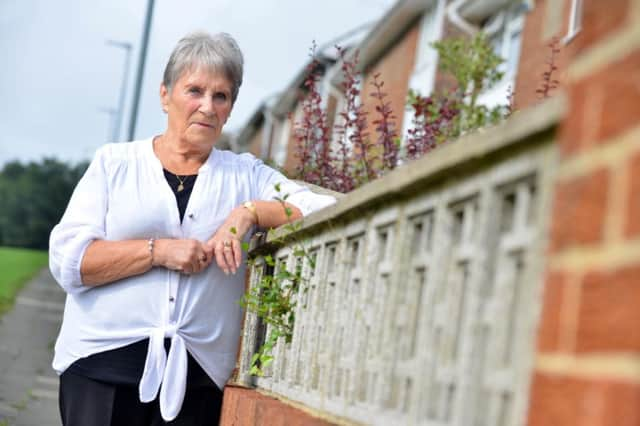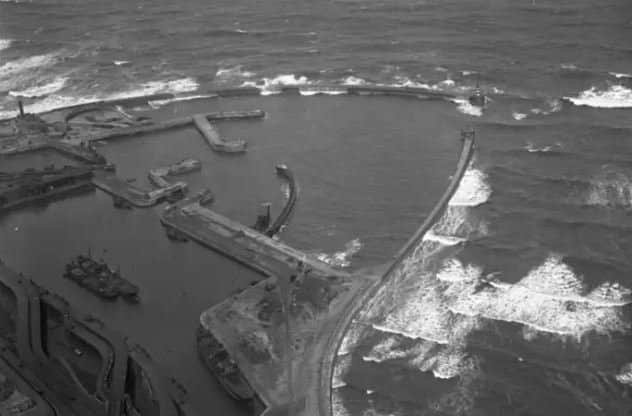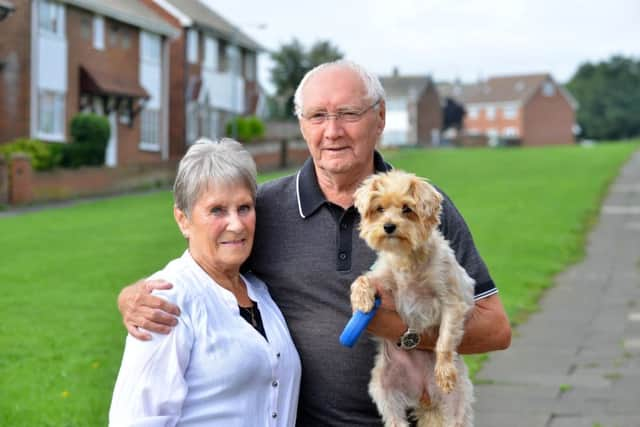She was four when she was lit up by the flares of German bombers


When you are just four-years-old with German bombers above, it is the stuff of sheer terror.
Yet this is exactly what happened to Lilian Richardson, now 82, in 1940s Seaham.


She shared her story with us.
One minute, she was enjoying dinner with her family.
Advertisement
Hide AdAdvertisement
Hide AdThe next, the sirens had gone off over their home in Daphne Crescent in Seaham.
It was August 1940 and Lilian will never forget it.


“My memories are so vivid even though I was only four,” she said. “The day it all happened it was so terrifying for all of us.
“The siren went and the German planes were overhead. All of a sudden, the front window was blown in, glass all over, and the soot came down the chimney. We were all covered – plus our dinners.”
There was only one option to take.
“We had to get out quick and into the Anderson shelter as fast as we could.”
Advertisement
Hide AdAdvertisement
Hide AdSix of them ran for cover – Lilian, her four siblings aged two to 10, and their mother. “My father was away in the Forces,” said Lilian.
As they headed for the Anderson shelter, the family could see the damage to their house. “The upstairs window was blown in and an interior wall was damaged with shrapnel,” said Lilian.
And when they got outside, there were “six craters in the field in front of our house with bombs being dropped, some of which did not explode.”
It wasn’t the only night of drama. “My mother had us all sleeping on a mattress in a cupboard under the stairs in case she had to get us out quick during the night”.
Advertisement
Hide AdAdvertisement
Hide AdAnd sure enough, it did happen one night. The Germans did come and the whole family dashed into the garden.
“It was really terrifying for me as I was the last one to get in the shelter.
“The German planes were overhead dropping flares and lighting the whole place up.
“I was in my nightie, jumping frantically about and shouting ‘they will see me’. My mother grabbed me and pulled me into the shelter.”
Advertisement
Hide AdAdvertisement
Hide AdAnd if that was not enough drama, Lilian had another encounter she would never forget.
“There was talk about a German pilot on the run, probably from the plane that was shot down in the North Sea.
“Well, we were playing in the field one day after the raid with some friends and we saw a man in uniform dodging among the bushes in the wooded area behind the field.
“We ran home to tell our parents and they immediately notified the ARP who came and searched the woods but I have never known to this day whether he was captured.”
Advertisement
Hide AdAdvertisement
Hide AdCan anyone shed light on this incident and who the man might have been?
Email [email protected] and tell us more.
Overall, it was a time in Lilian’s life to stick in the memory. “This was an event in my lifetime that I shall always remember and feel how lucky we were to live through it.”
After the war, Lilian went to grammar school and went on to have a number of jobs.
She eventually went into nursing when she was 40. She remembered: “I was in a class with 18-year-olds.”
Advertisement
Hide AdAdvertisement
Hide AdShe had three children, a daughter and two sons, and retired from work in 1995.
And while the air raid remains a permanent memory, it does for her husband Brian as well who was in Ilchester Street at the time.
Records show that 12 people died when Heinkels and Messerschmitt 110’s dropped bombs on Seaham and Dawdon.
The Germans mistakenly believed the RAF’s fighters were concentrated on the south coast. They targeted the North East and expected to encounter little opposition. They were wrong.
Advertisement
Hide AdAdvertisement
Hide AdSquadrons of locally based fighters fought off the attackers and the Luftwaffe would later dub the day as Black Thursday.
It might have been a success for the RAF, but for the people of Seaham, it was a day of tragedy.
Who else has memories of the German attack on Seaham?
Or is there another part of the war which affected Wearside and County Durham which you would like to recall.
Get in touch and share your reflections by emailing [email protected].